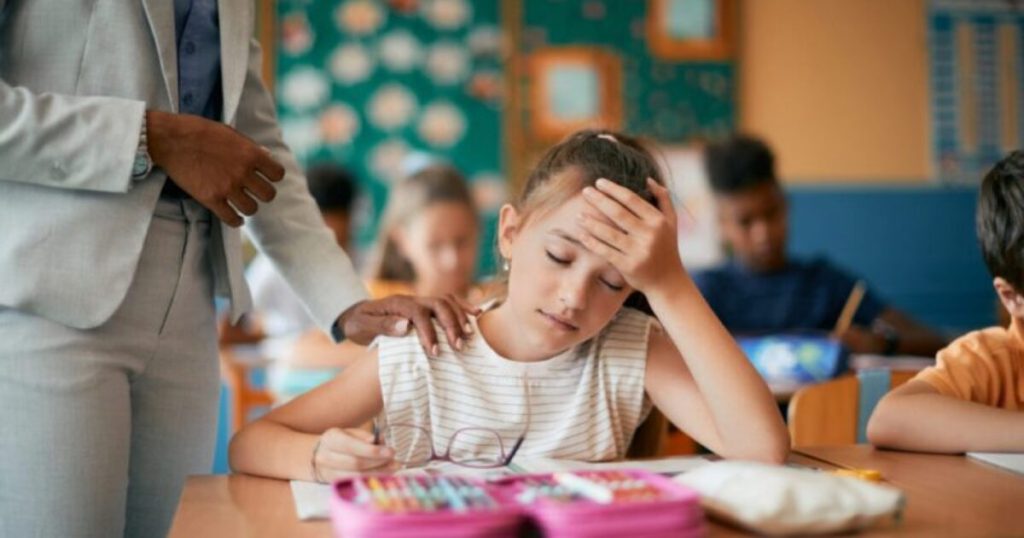
Guest post by AbleChild and published at JoeHoft.com – republished with permission.

A Biden-Harris Administration information paper explains that “our country is facing an unprecedented mental health crisis impacting people of all ages.
In 2021, two in five American adults reported experiencing symptoms of anxiety and depression and forty-four percent of high school students reported struggling with persistent feelings of sadness and hopelessness.”
Rather than ask why the nation is in the throes of a national mental health crisis, the Biden-Harris Administration, with the help of a useless Congress, decided to throw money at the “mental health crisis.”
That’s right, our exalted leaders haven’t got a clue why Americans are depressed, sad, anxious, and hopeless and, in fact, don’t care to find out. But the President and Congress believe that money will fix the “crisis.”
And just to make the damage as widespread as possible, they’ll enact mandatory programs that target vulnerable, naive school kids.
Does this sound like responsible leadership? No. Especially when one considers all the facts. Short of ending all efforts to bring mental health diagnosing and treatment into the public school system, AbleChild predicts that within five years the mental health “crisis” will increase exponentially with devastating effects for decades. Here’s how it works to get mental health patients cradle to grave.
One of the Biden-Harris Administration’s mental health interventions comes out of the Bipartisan Safer Communities Act (BSCA) which mandates that Medicaid cover mandatory mental health screening for school-age children.
In fact, $280 million has been awarded to “bolster the pipeline of mental health professionals serving in schools and expand school-based mental health services and supports” in schools.
Currently, nearly 74 million Americans are enrolled in Medicaid and CHIP and nearly 38 million of those enrollees are children. Under the new mandates, children will be forced to undergo mandatory mental health exams.
These mandatory mental health exams fall under the Early and Periodic Screening, Diagnosis and Treatment (EPSDT) benefit and the mental health screenings “are required to be covered by Medicaid and CHIP.”
In fact, according to EPSDT, “a wide range of services for children are required to be covered under Medicaid’s EPSDT benefit… and all screening services for children as well as any needs, as children diagnosed with mental or other behavioral health conditions must receive any service available under federal Medicaid law necessary to address the condition…”
So, not only will students on Medicaid or CHIP be required to have mental health screening, but if the child is diagnosed with a mental illness, Medicaid must pay for the treatment.
Here’s the problem with this federal benevolence. The mandatory screening is explained in a 184-page Medicaid Guide that, remarkably, provides no guidance about who will administer the screening and what screening is recommended or considered the standard to be utilized. It matters.
Will school psychologists be required to provide the screening in a school setting? Will parents be required to take a child to the pediatrician for the screening?
And, more importantly, what screening tool will be used? There are dozens of mental health screening tools. Which screening tool is utilized matters.
After all, let’s remember that these mental health screening tools are not based in science. These screening tools are nothing more than questionnaires asking benign questions about how someone feels and thinks about things.
The real problem is that psychiatric diagnosing is not based in science. Psychiatric diagnosing depends on answers to questions and may result in different outcomes depending on the day, time, mood of the child answering the questionnaire.
Further, if every Medicaid child recipient must adhere to these screenings, does that mean that children who are exhibiting no signs of mental illness will be forced to comply to mental health screening?
Suddenly it seems possible that if a child answers the questions “wrong” they will be diagnosed even when there are no behavioral issues and certainly no abnormality.
The fact is, because psychiatric diagnosing is not based in science (an objective, confirmable abnormality) it is too easy to report mental health issues where there are none.
Could that be one of the reasons for the mental health “crisis?” When you don’t need any proof of an abnormality, then anyone can be labeled as mentally ill.
Has this possibility occurred to anyone in a leadership position? That maybe, just maybe, anyone and everyone can easily be diagnosed with a mental illness because of a questionnaire.
And let’s be clear, anyone who claims that ADHD, Depression, Anxiety, Bipolar or any of the other alleged mental illnesses are abnormalities of the brain should not be allowed anywhere near anyone’s child.
There simply is no scientific or medical proof of an abnormality in the brain that is any psychiatric diagnosis and to say otherwise is a lie.
Currently, 20% of the nation’s 3–17-year-olds have been diagnosed with a mental illness, about 8 million kids. One can only wonder what it will take before someone begins to question the fraud of the diagnosing.
Will it take the number of children being diagnosed with a mental illness to outnumber those without a mental illness before some smart lawmaker demands to know why the nation’s children are suddenly mentally ill?
Because the mandatory mental health screening is tied to federal Medicaid money, it’s unclear if families can opt out. As part of the Safer Communities Act, federal agencies were required to review the EPSDT program by June of 2024.
Then, apparently, data would have been provided as to how many school-age children were provided the mental health screening, where it was provided, what questionnaire was utilized and how many mental health diagnoses were made.
Who wants to bet that we’ll see an enormous increase in the number of school-age children diagnosed as mentally ill in need of treatment? Time will tell. The report is not available yet.
Be the Voice for the Voiceless
Every dollar you give is a powerful statement, a resounding declaration that the struggles of these families will no longer be ignored. Your generosity today will echo through generations, ensuring that the rights and well-being of children are fiercely guarded. Don’t let another family navigate this journey alone. Donate now and join us in creating a world where every child’s mind is nurtured, respected, and given the opportunity to thrive. As a 501(c)3 organization, your donation to AbleChild is not only an investment in the well-being of vulnerable children but also a tax-deductible contribution to a cause that transcends individual lives.
The post AbleChild: School-Based Mental Health Diagnosing, A Prescription for Disaster appeared first on The Gateway Pundit.







